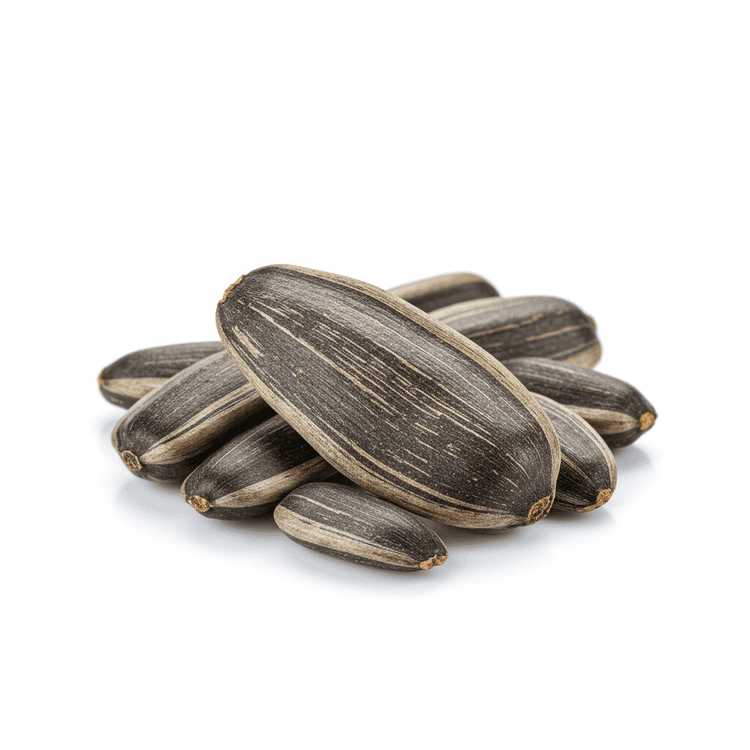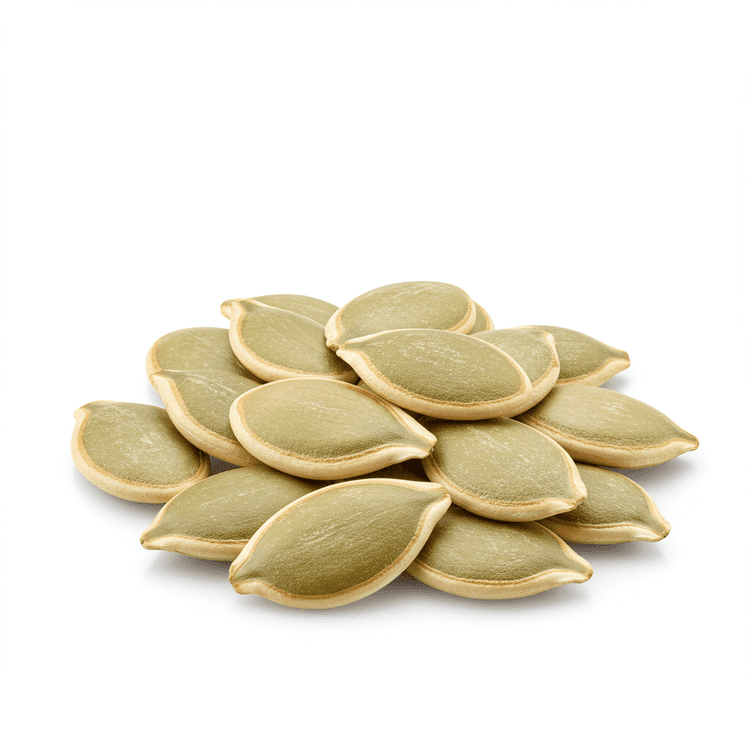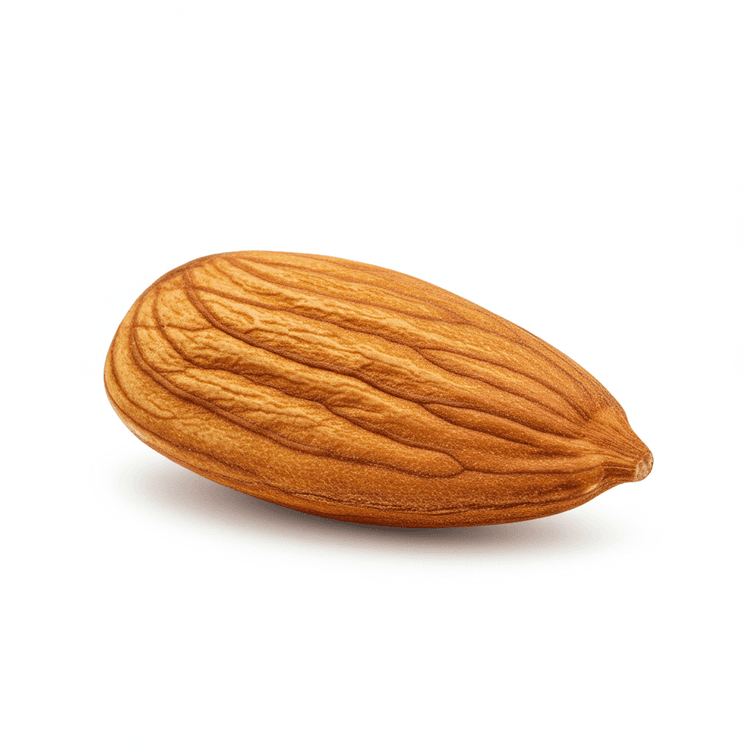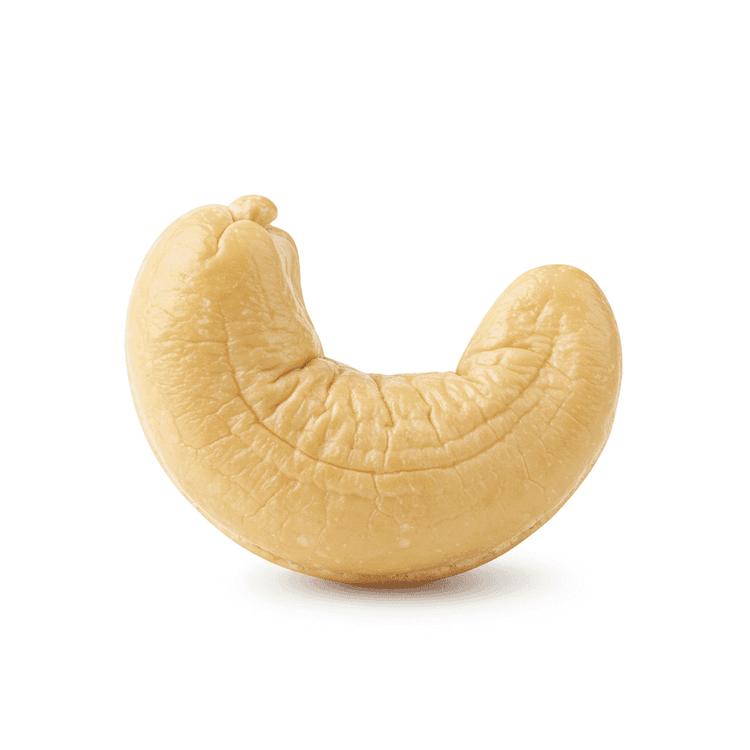
Egusi
Egusi, also known as melon seeds, are the flat, oval, cream-colored seeds of various cucurbitaceous plants, predominantly found in West Africa. These seeds boast a mild, nutty flavor that intensifies when roasted or ground. Their texture is firm and slightly oily when raw, transforming into a creamy consistency when cooked. Egusi seeds are a staple ingredient in West African cuisine, adding both flavor and thickening properties to soups and stews. They are a rich source of plant-based protein and healthy fats, making them a nutritious addition to any diet. The seeds are often sold whole, ground into a powder, or pressed into egusi oil.
Common Uses
- Egusi soup: Ground egusi seeds are the star ingredient in traditional egusi soup, a flavorful and hearty West African soup. The ground seeds thicken the broth and create a rich, creamy texture, typically combined with leafy greens, vegetables, and various meats or fish.- Egusi stew: Similar to soup, egusi stew features ground egusi seeds cooked with tomatoes, peppers, onions, and other ingredients to create a savory and satisfying stew.- Egusi balls: Ground egusi seeds can be mixed with spices and formed into small balls, which are then fried or added to soups and stews for added flavor and texture.- Roasted egusi seeds: Whole egusi seeds can be roasted and enjoyed as a snack, providing a crunchy and nutty treat. Roasting enhances their natural flavor and makes them even more delicious.- Egusi oil: Egusi seeds can be pressed to extract their oil, which is used in cooking and traditional medicine. The oil has a mild flavor and is a good source of essential fatty acids.- Thickening agent: Ground egusi seeds are used as a natural thickening agent in various sauces, stews, and soups, adding body and richness to dishes.
Nutrition (per serving)
Nutrition (per serving)
Calories
576.0kcal (28.8%)
Protein
28.0g (56%)
Carbs
16.0g (5.82%)
Sugars
4.0g (8%)
Healthy Fat
32.9g
Unhealthy Fat
9.6g
% Daily Value based on a 2000 calorie diet
Nutrition (per serving)
Calories
576.0kcal (28.8%)
Protein
28.0g (56%)
Carbs
16.0g (5.82%)
Sugars
4.0g (8%)
Healthy Fat
32.9g
Unhealthy Fat
9.6g
% Daily Value based on a 2000 calorie diet
Health Benefits
- Rich in protein, essential for muscle building and repair.
- Good source of healthy fats, supporting heart health and brain function.
- Contains vitamins and minerals like vitamin B and potassium, crucial for overall well-being.
- High in dietary fiber, aiding digestion and promoting gut health.
- May help lower cholesterol levels due to its unsaturated fat content.
- Supports healthy skin and hair with its vitamin E content.
Substitutes
Chefadora AI is here.
Experience smarter, stress-free cooking.
Storage Tips
Egusi seeds should be stored in an airtight container in a cool, dry, and dark place to prevent them from going rancid. Properly stored, they can last for several months at room temperature. If you live in a humid climate, consider refrigerating or freezing the seeds to extend their shelf life even further. Ensure they are completely dry before storing to prevent mold growth.
Marnirni-apinthi Building, Lot Fourteen,
North Terrace, Adelaide, South Australia, 5000
Australia




